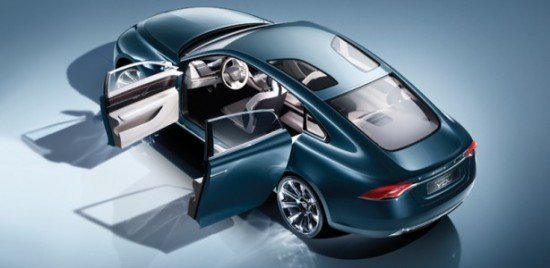After Paying $1.5 Billion For Volvo, Geely Must Pay Seven Times More

However, the platforms are not getting younger, and from what I heard back then, the licenses with Ford also have their limits. Geely has to invest into the future if Volvo is supposed to have one. Price of admission to the future: Many times the purchase price of the car company.
In August 2010, Geely bought Volvo for $1.5 billion. Now, Geely will pour more than seven times as much, $11 billion until 2015, into a development program for the next generation Volvos, Reuters says.
The billions should also be a lecture to private equity funds and closet captains of industry who want to snap up moribund car companies on the cheap.
The main part of the R&D will be performed in Sweden. About half of the $11 billion will go to building the infrastructure in Sweden that helps bringing the new technology to market. According to Volvo, this amounts to “one of Sweden’s largest ever industrial investments.”
At the heart of the project are two programs: SPA (Scalable Product Architecture) and VEA (Volvo Engine Architecture).
VEA is the basis for a new four-cylinder fuel-efficient engine family. The big challenge is SPA.
SPA appears to be a variation on the modular systems that have been pursued mostly by European and Japanese carmakers. Volvo says its SPA consists “of shared modules and scalable systems and components, all manufactured in a flexible production system.” These frameworks are considered to be the high art of automotive engineering. Volkswagen’s MQB/MLB/MSB architecture is a notable example.The modular systems, and not cheap labor are key to flexible low cost mass production.
Explains Volvo’s R&D chief Peter Mertens:
“SPA makes us technologically independent, without any link whatsoever to our previous owner. The new architecture covers about two-thirds of our total sales volume. With about 40 percent of all components shared by all car models irrespective of size, we will benefit from economies of scale.”
The architecture was first shown at last year’s IAA motor show in Frankfurt in Volvo’s Concept You vehicle. The first car model based on the new architecture is the Volvo XC90, planned for the end of 2014.
When Geely bought Volvo, many expected that the company would be dismantled and shipped to China, and used as a Trojan Horse for cheap Chinese cars coming to the West.
None of this happened. To this date, there is no Volvo production in China, although Volvo took steps to get Chinese production going. Being a Swedish entity however, Volvo is treated by the Chinese government just like a foreign carmaker and needs to wait for government approval.


